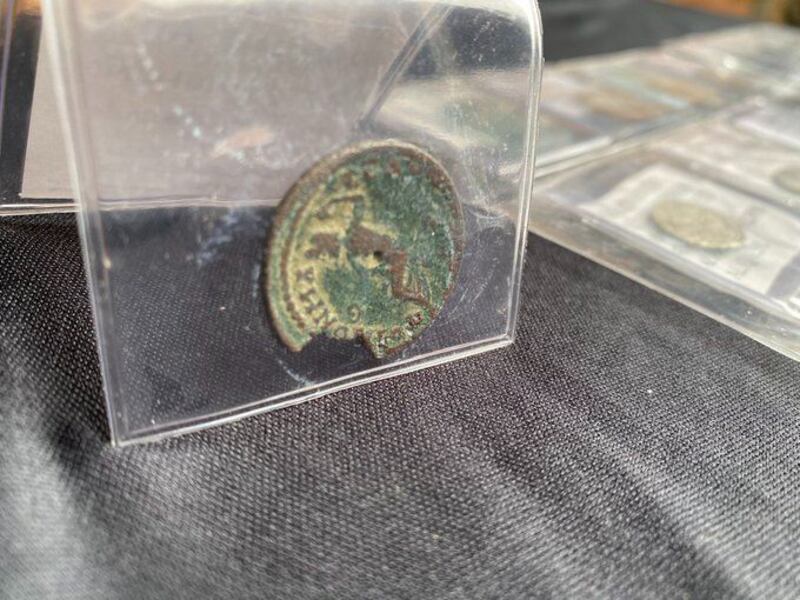Homeland Security Investigations agents transferred ancient coins seized at the Canadian border to the University of Washington on Thursday.
The 51 Greek Hellenistic and early Islamic coins were seized as part of a joint investigation with Customs and Border Protection in Blaine.
Agents said the coins had no legal providence associated with them to prove they were acquired legally and imported to the United States. The university requested the coins, which can be safely stored there and used for educational purposes.
HIS agents have the authority to take the lead investigating crimes involving the illegal import and sale of cultural property and art.
Federal officials added that historic coins serve no purpose when people try to sell them on the black market.
“We lose the context of what the coins meant where they were discovered,” said Special Agent in Charge Robert Hammer of the U.S. Department of Homeland Security.
According to university researchers, some of the most critical knowledge of ancient history can be tied to historic coins.
“We can date them. And they often represent buildings that don’t exist anymore,” said professor Sarah Stroup, University of Washington Department of Classics.
Federal agents said this case highlighted an ongoing saga for archaeologists everywhere.
In the past decade, U.S. Customs and Border Protection agents uncovered 12,000 coin smuggling operations across the United States, with more likely to follow.
“A private citizen like this would not normally be in possession of something like (ancient coins). That’s immediately suspicious,” said Brian Humphrey, director of field operations for U.S. Customs and Border Protection.
When such items are seized, HSI investigators first work to return them to their rightful owners. But in cases where ownership can’t be determined, appropriate institutions, such as the University of Washington, can keep the relics.
Having the coins at the University of Washington will give students and researchers the opportunity to have firsthand experience with the artifacts that they likely won’t find elsewhere during their education.
“We’re not talking about writing things up on a board. We’re talking about handing a student an artifact that says this is 3,000 years old,” said University of Washington curator Sandra Kroupa.
The coins will be used by UW faculty to increase awareness about the illegal trade of artifacts and discuss the societies where they were created.
Pieces of #history— donated! Today @UW library took delivery of dozens of ancient coins that had almost been sold on the black market. A man was busted by @USCustomsandBo1 trying to smuggle these coins into #Canada & illegally sell them. 2 yrs later, each coin was given to @UW pic.twitter.com/5Re7VqxDN8
— Ryan Simms (@RyanKIRO7) February 19, 2021
Cox Media Group







